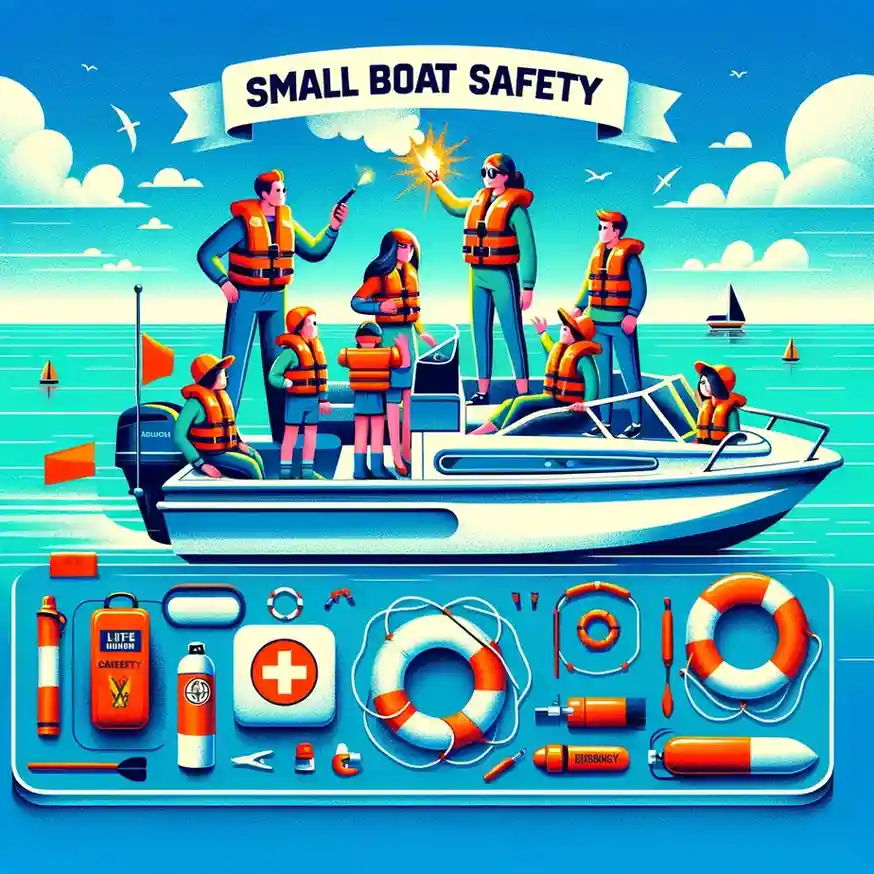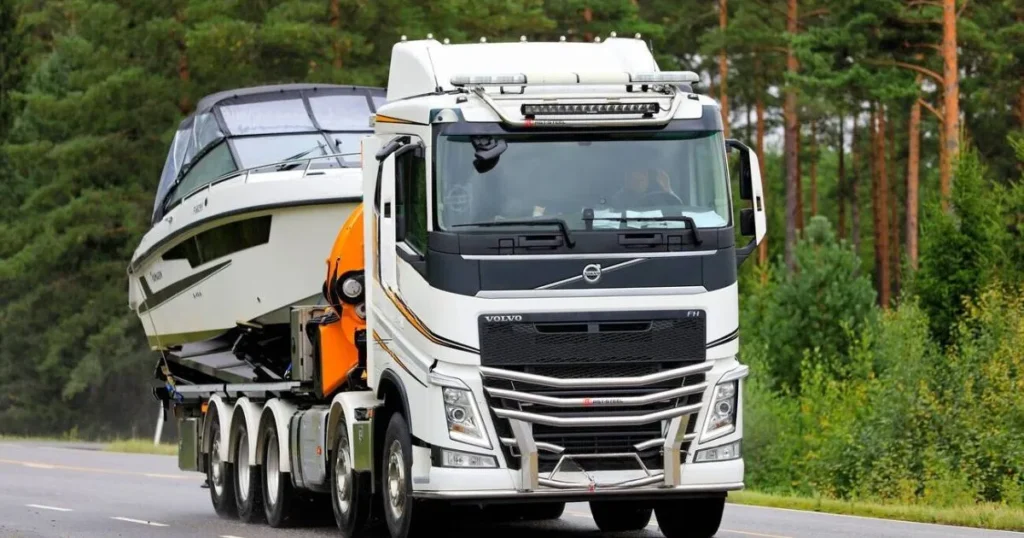When considering boats, their weight may not be the first thought that springs to mind. Yet the weight of a boat plays a role for reasons such as transport and storage convenience, fuel efficiency, and performance on the water.This guide delves into how much do boats weigh?, its variations based on type, and its significance. Whether you’re a boater or contemplating your boat purchase, this detailed guide offers valuable knowledge.
Table of Contents
Understanding Boat Weight
Many things impact on the weight of a boat, such as its type, materials, size and the gear it carries. Let’s break down what makes up the weight of a boat;
Hull Material:The hull serves as the body of the boat. It can be made of materials like fibreglass, aluminium, wood or steel. Each material comes with its density and weight.When selecting a boat, weight is an issue. Boat maintenance specialist Amos Heller suggests choosing one made of materials such as fibrweight’s aluminium.
Size and Dimensions:Naturally, larger boats weigh more than smaller ones. Factors like length, width, and height all affect weight.
Gear:The number and type of engines on board, as well as equipment such as fishing gear, navigation systems, and safety tools, contribute to the boat’s weight.
Fuel and Water:Boats often carry fuel and fresh water for journeys, which can significantly increase their weight.
Passengers and Cargo: The number of passengers aboard, along with their belongings, also adds to the weight of the boat.
Why Boat Weight Matters
Knowing the weight of a boat is important for the following reasons:
Transportation and Trailering: It’s essential to choose the trailer and vehicle for towing.
Performance:A heavier boat might need a stronger engine, impacting speed and maneuverability.
Fuel Efficiency:Heavier boats typically use fuel.
Safety: Overloading a boat can pose risks on the water.
How Much Do Different Types of Boats Weigh?
Small Boats
Kayaks and Canoes: These types of boats are usually on the side. A solo kayak can weigh 20 to 80 pounds, whereas a canoe may weigh between 50 and 80 pounds. The materials used, such as fibreglass, aluminium, and wood, play a role in determining the weight.
Inflatable boats are known for their convenience and versatility. They come in sizes ranging from single-person models weighing as little as 20 pounds to larger ones that can carry multiple passengers and weigh around 200 pounds.
Medium-Sized Boats
Fishing Boats: Boats’ weights can differ significantly based on how they’re built and the gear they have onboard. For instance, a compact aluminium fishing boat may weigh 300 pounds, whereas bigger models with equipment could tip the scales at around 1,500 pounds.
Pontoon Boats: Pontoon boats are well regarded for their durability and roominess. They usually weigh between 1,500 and 3,500 pounds.
Sailboats: Sailboats come in sizes and designs, leading to a range of weights. Smaller sailboats typically weigh 400 pounds, whereas larger ones can surpass 8,000 pounds.
Large Boats
Speedboats: Crafted for speed and agility, speedboats can weigh from 2,000 to 6,000 pounds. Some high-performance versions equipped with engines might even exceed this weight.
Cabin Cruisers: Tailored for voyages and overnight accommodations, these boats typically weigh 6,000 to 12,000 pounds.
Yachts: Opulent and spacious yachts come in a range of weights, from around 20,000 pounds for variants to over 100,000 pounds for extravagant superyachts.
You can also read about How Much Do Boats Cost?
Tips for Managing Boat Weight
When selecting a boat, weight is an issue. It’s best to go for one made of materials such as fibrweight’s aluminium. Make sure to clean your boat and prevent any buildup of water or debris that could increase its weight unnecessarily. Distribute the weight evenly. Avoid overloading your boat with gear or supplies. If you find that your boat is heavier than anticipated, think about upgrading to an engine to keep its performance up to par.
Frequently Asked Questions About Boat Weight
1. Why is the weight of a boat important?
Understanding a boat’s weight is crucial for transportation, performance, fuel efficiency, safety, and performance and fuel consumption.
2. How can I find out the weight of my boat?
The weight of your boat is typically listed. You can also weigh your boat using a scale at a truck stop or weigh station.
3. Does the weight of a boat affect its speed?
Yes, a boat’s weight affects its speed. Heavier boats require more power to achieve the same speed as lighter boats. They also tend to be slower and less maneuverable.
4. What materials are boats made from, and how do they affect weight?
Boats can be made from fibreglass, aluminium, wood, and steel. Fibreglass and aluminium are lighter materials, making the boats easier to transport and more fuel-efficient. Wood and steel are heavier, providing durability and stability but increasing weight.
5. How much does an average fishing boat weigh?
A small aluminium fishing boat might weigh around 300 pounds, while larger models with more equipment can weigh up to 1,500 pounds.
6. Can I reduce the weight of my boat?
Boat weight can be reduced by removing unnecessary equipment and gear, using lighter materials for repairs, and ensuring the boat is free from excess water and debris.
7. How does passenger and cargo load affect boat weight?
The weight of passengers and their belongings adds to the total weight of the boat. It is important to distribute this weight evenly to maintain balance and avoid overloading the boat beyond its capacity.
8. What should I consider when towing a boat?
When towing a boat, consider the combined weight of the boat and trailer. Ensure your vehicle can handle the total weight and use the appropriate towing equipment to maintain safety on the road.
Conclusion
Understanding your boat’s weight is crucial for ensuring a smooth boating experience. Whether you’re navigating a kayak or a large yacht, each type of vessel has weight considerations that impact how it is transported, its performance on the water, and overall safety. By being mindful of these factors, you can make choices and fully enjoy your time out on the water with peace of mind.
Whether you’re a sailor or just starting, understanding boat weights and their significance will enhance your boating adventures.













